This article introduces projects available in Flathub with installation instructions.
Flathub is the place to get and distribute apps for all of Linux. It is powered by Flatpak, allowing Flathub apps to run on almost any Linux distribution.
Please read “Getting started with Flatpak“. In order to enable flathub as your flatpak provider, use the instructions on the flatpak site.
These apps are classified into four categories:
- Productivity
- Games
- Creativity
- Miscellaneous
Wildcard
In the Productivity section we have Wildcard. This is a small app that will help you test your regular expressions. It is part of the GNOME project. Usually this best suits developers, but may also be useful for sysadmins who use regular expressions on the command line to find things in logs and more.

You can install “Wildcard” by clicking the install button on the web site or manually using this command:
flatpak install flathub com.felipekinoshita.Wildcard
Wildcard is also available as an rpm in the Fedora Linux repositories
X-Moto
In the Games section we have X-Moto. This is an oldie, but a very fun game.
Before you start complaining, yes it says it is unverified, and yes the latest release is from 2023, but this is one of the games that set the idea of gaming on Linux as possible. It’s a simple platform moto challenger where you need to drive your motorcycle until the end of the circuit. With thousands of circuits and very difficult records to break, X-Moto will let you pass a lot of time in front of your computer. I recommend using the “Quick start” button and setting a random level!

You can install “X-Moto” by clicking the install button on the web site or manually using this command:
flatpak install flathub org.tuxfamily.XMoto
X-Moto of course is also available as an rpm in the Fedora Linux repositories
Speech Note
In the Miscellaneous section we have Speech Note. Speech Note lets you take, read, and translate notes in multiple languages. It uses Speech to Text, Text to Speech and Machine Translation to do so. Text and voice processing take place entirely offline, locally on your computer, without using a network connection.
This is a huge app, the download is almost 1 GB, and installed it took almost 3 GB, but it’s a great app to test and improve.

You can install “SpeechNote” by clicking the install button on the web site or manually using this command:
flatpak install flathub flathub net.mkiol.SpeechNote
Easy Effects
In the Creativity section we have Easy Effects. This is an advanced audio manipulation tool. It includes an equalizer, limiter, compressor and a reverberation tool, just to mention a few. To complement this there is also a built-in spectrum analyzer. Easy Effects is the successor to PulseEffects and only supports PipeWire’s audio server. Besides manipulating sound output, Easy Effects is able to apply effects to an input device, such as a microphone. This is, for example, useful in audio recording, but also works well during voice conversations.
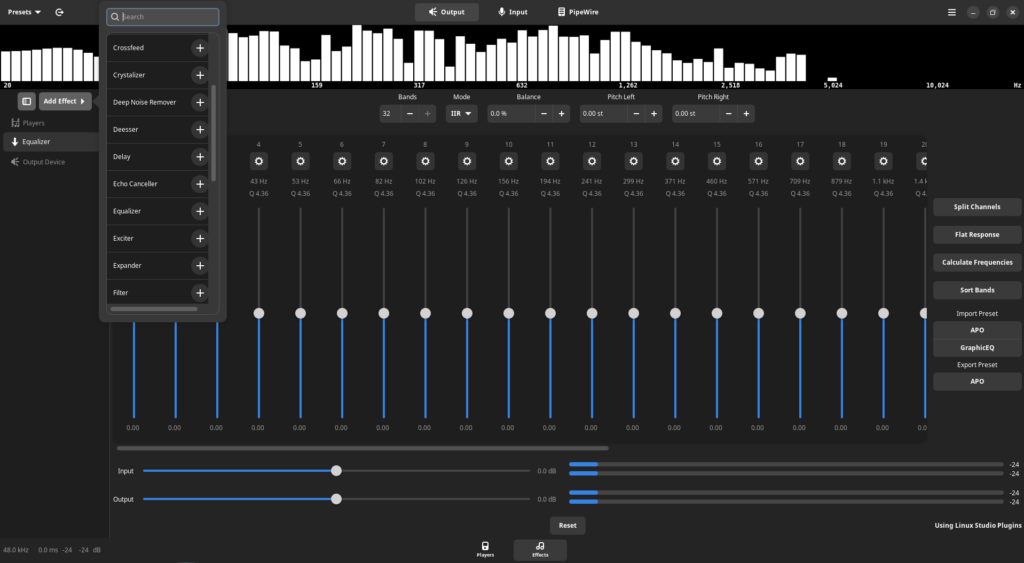
You can install “EasyEffects” by clicking the install button on the web site or manually using this command:
flatpak install flathub com.github.wwmm.easyeffects
Easy Effects is also available as an rpm in the Fedora Linux repositories


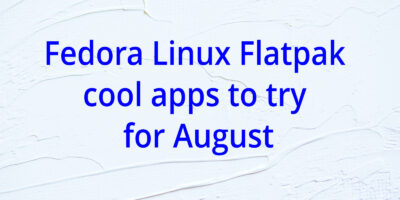
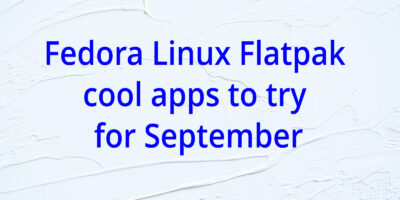

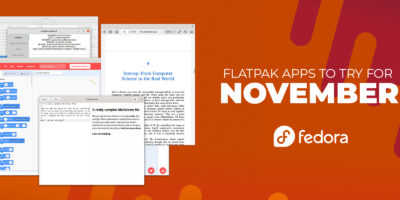



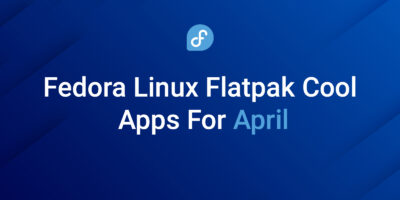




Ed Scott
As an amateur radio operator and a veteran interested in shortwave radio for listening to international events in these dangerous times, I would be interested in using a program like Speech Note to translate radio reception on the fly. I’d like to connect HF transceiver audio directly to a computer running Fedora using a translation program to translate audio. Could Speech Note do this? Could Fedora Magazine do an article on this? Russia, China, North Korea and Iran are increasingly teaming up to oppose American interests. Taiwan, the South China Sea, Ukraine, and the Middle East could all be of interest for shortwave listening with a means to translate audio on the fly. Europe and Japan are other areas where this capability would be of interest. With the intensity of cyber warfare increasing for Internet, I expect RF broadcasts (i.e. shortwave radio) to be returning to popularity. Satellites (i.e. their semiconductors) are becoming increasingly vulnerable and were attacks against them or intense solar event to occur, shortwave radio could be of even greater importance making translation of shortwave audio very useful.
null_pointer
I’ve seen comments censored for less than this.
By the way. It’s “USA’s interests” not “American interests”.
misc
Haha well said “USA’s interests”, it’s still difficult for the gringos to understand that.
ComradeLenin
That’s not actually a bad idea, leaving aside political arguments. I think it implies speech note has some kind of a cli/api that we can call programmatically and it would probably involve some device input output piping. It could have a lot of applicability, you can probably run some machine learning workload to extract most frequent words or sentiment analysis or key words… You could probably do this analysis directly on the sound by using some kind of machine learning or fourier decomposition but if you can get speechnote to do this part, it will simplify the other stuff… A good idea for a practice project…
Rob
Ham radio is supposed to be apolitical and promote international understanding. You might want to recheck your training. Definitely not supposed to be used for snooping or intelligence work! Universial translation interesting concept. Lots to unpack here, but let’s keep ham for peaceful purposes.
Rob Haines
KC3LQX
Clifford
…umm
Clifford
Ed Scott.. Nice IDEA!
Darvond
Speechnote would be nice to use if SELinux hadn’t completely clobbered permissions in the F41 beta. I’ll wait and see.
blackcrack
Well, i am as Veteran in Linux want not turn my Computer to a Trashcan and hold my clean RPM way,
and remove all what habe to do with Flatpack because i want have not atrashed OS .
Instead of building flatpack packages we should finally decide to have a common packet system instead of deb or rpm (maybe rdm). At the moment dnf and apt are the same command line. We just need a common, real packet system and not a half-baked one that isn’t even in system packet management like dnfdrake in rpm or in Debian with its packet management in order to have something like a Microsoft MSI in Linux and thus have a common standard that doesn’t clutter up the system and is compliant with every basic Linux system. Flatpack is not it. As I said, Flatpack can be installed in every system, but it is not Flatpack. It clutters up the system.
lemc
I agree 100%. Flatpack and similar sandboxed packaging standards are an attempt to overcome the lack of standards among Linux distributions. But they are a backward move to a DOS era, when all files needed by a program were in its own directory. This may work on Linux, but it is inefficient and clutters the system, as it has been said. And as another reader remarked, it’s really a “dumbing down of Linux”. Given the FOSS nature of Linux, one single system-integrated, native package standard may not be feasible in the short term or longer, but two might be, especially if they already exist, and especially if they are used by the arguably most important Linux distributions. I’m referring, as everybody knows, to the RPM and DEB standards.
RetiredIT
Flatpak and Snaps = The dumbing down of Linux!
GRS
I agree with the comments regarding the need for a common packaging standard for linux across the baord. It would open up a lot of flexibility and allow hopefully users and developers to take advantage of applications on their preferred platforms. I will say however the Flatpak has allowed me to retain the use of a package then has long disappeared from the repositories and although it is no longer maintained I have the ability to use it for my purposes. So perhaps there is a case to be made for having some type of package format that allows no longer maintained applications to be run on linux systems into the future.
GroovyMan
With the exception of easy effects all the shown applications can be loaded as a better integrated application from the rpm-repository of Fedora itself of rpmfusion.I am not sure, why all theses guys here propose a more unsafe source of applications.
The problem of flatpack is, that it comes with possibly unmaintained libraries that is out of scope of the distributor. Do not forget, a fixed libc on your workstation will sane all of your installed applications in one go.
Any also shipped extension library that comes with the flatpack might not be maintained by the distributor or maintainer. So iff you want that Windows feeling with multiple copies in different version of a tool library, that is also installed locally by other apps, get your flatpack and directly into security problemens.
Not sure why all propose that idea, is it for to have a increased by one sub-fix-version number ??
vadim s. sabinich
Thanks for this list of apps!
X-Moto looks like a great old game on flash in my youth. When I instead of study on computer into the classroom doing competition with my friends 🙂
Rob
I played a ton of XMoto in my college days in the late 2000s. It’s a super addictive game, and it’s cool to see that it’s still going.